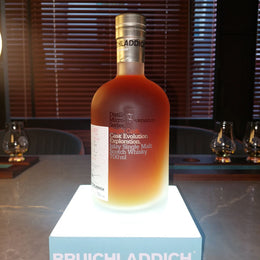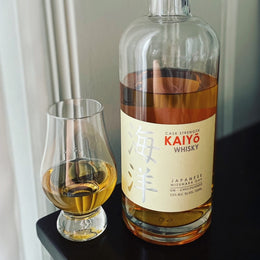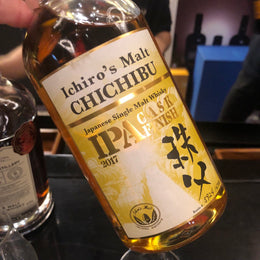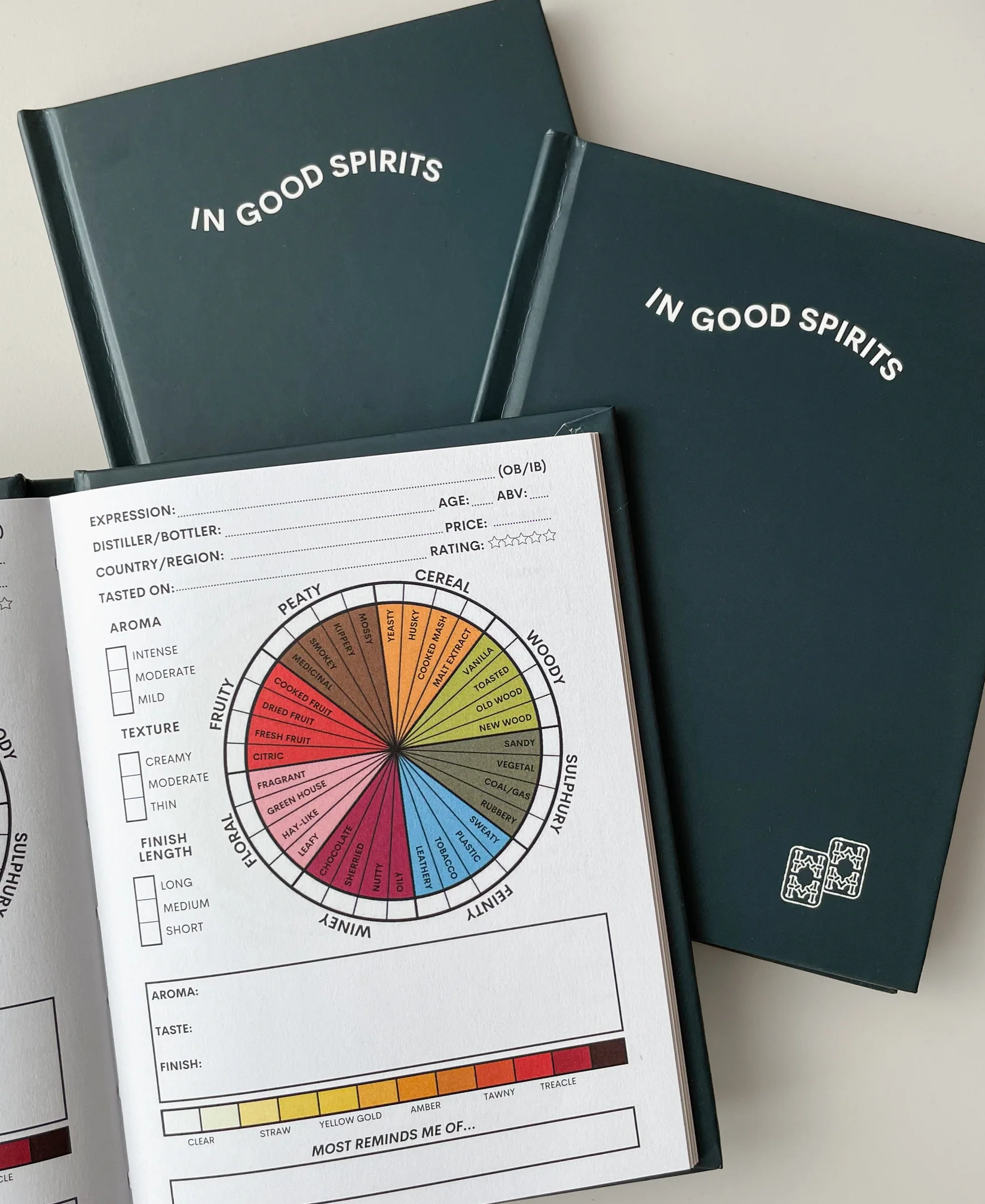
A Tiger, a Unicorn, and an Eagle, what do they all have in common? That’s right – Korea’s Three Societies Distillery.
The name itself should give you a sense that something about the distillery’s story involves three different formative parts coming together – Bryan Do, the founder, is Korean American, represented by the Tiger and the Eagle, while his partner Andrew Shand is Scottish, signified by the Unicorn.

Now, we previously reviewed the inaugural release from the Korean distillery – the Tiger (review here), which was aged for 13 months in virgin American oak casks, and in the blink of an eye, we’re clocking in at 21 months of aging, or specifically two more seasons in Korea, which is the basis of the second release – the Unicorn.
We’ve already gone into detail the story behind the Three Societies Distillery, so I won’t wear out my dear keyboard going over it again. You can find the distillery deepdive here.

Three Societies is up against a whole lot if you dig into it. (Image Source: Three Societies)
Instead, I want to talk economics and trade policy. Woah, woah, hold up. That’s not what you came for! But it matters and I’ll tell you why.
There are many ways to categorise alcohol – distilled versus non-distilled, different base ingredients, geographical locations, pot still versus column still, and so on. It’s as varied as there are people on this planet. Okay, that might have been an exaggeration, but you get the idea.
Here’s another way to think about it, and I find it increasingly pertinent as more countries outside of the UK begin to dabble into making their own whiskies – local alcohol or foreign alcohol. This doesn’t have to do with where it is produced (that’s for another time), but rather whether or not a specific alcohol hails from a specific country. Korea has Soju and Makkgeolli, Japan has Sake and Shochu, Scotland has, of course, whisky.

Korea has no shortfall of local specialty alcoholic beverages. (Image Source: Aahata)
Winding back time, it’s pretty apparent that many of these alcohol-producers prove to be formidable forces in these countries’ economy, and not only exert considerable political suasion, but are also responsible for some pretty important stuff like employment and the like, all the way down the line. In countries like Japan, Suntory and Asahi’s business go far beyond alcoholic beverages and have spread their interests across many facets of society far removed from fermenting some alcohol. Or take a look at Taiwan, which has now become one of the major whisky producing regions, where Kavalan Distillery was held back for a long time because the government themselves had wanted to monopolise the lucrative alcohol market with their own Taiwan Beer. Alcohol is much more than just good times and quality craft, it’s also a whole lot of economics and policy.
Given how big these alcohol businesses are and the significance they have nationally, you can expect that they are given a whole lot of protection, which is where the trade policy comes in. As globalization would have it, every market directly interacts with one another – consumers in Japan absolutely love America’s Bourbon, drinkers in America can’t get enough of Mexico’s Tequila, the world is head over heels over Japan’s whisky. And the wonderful thing about the world we live in today, is that for the most part, if we like the produce of another country, we can get our hands of it without travelling abroad and lugging a couple of bottles all the way back.

Traditional local alcohol producers enjoy significant support from the state as a result of their national importance. (Image Source: Taste Atlas)
Who could argue against having more options? Local businesses can. When foreign products start to give local produce a run for their money, you might imagine governments begin to feel the heat to protect their own kin.
This can range from authoritarian outright banning of certain products, but more commonly tax and tariffs on international imports, which itself can stretch from clear taxation of certain countries’ products, to something alittle more discreet, by creating tariffs for any products that just so happens to fall out of a highly narrow definition that almost seems vaguely identical to some sort of national product.
Here’s an example – Japan’s Shochu, whilst now mounting a comeback, had suffered decades of decline that was almost painful to watch. This affected the entire economy of one of Japan’s largest islands, Kyushu, in fact the third largest of Japan’s five main islands, given that most Shochu makers were concentrated in the region. Would you be surprised then that the World Trade Organisation (WTO) found that Japan had taxed Shochu much more favorably compared to foreign spirits, having classified them as dissimilar to what would fall under “distilled spirits”.
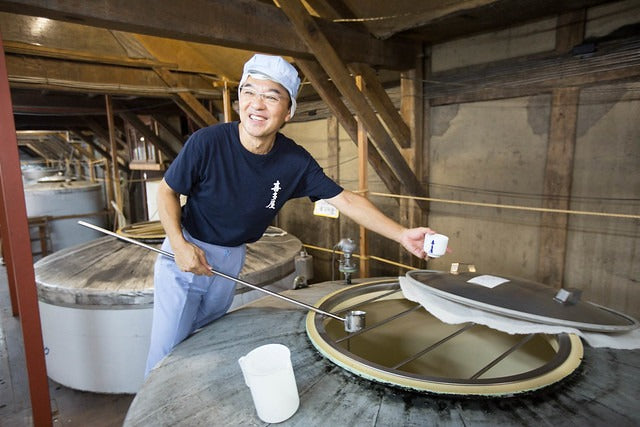
It's no surprise that Shochu is tax advantaged in Japan. (Image Source: Umami Mart)
Let’s take a look at another example – the whisky scene in Korea, or rather the lack thereof. Somewhat two faces of the same coin, Korea has a highly favorable tax regime for local Korean specialty spirits (even if the ingredients are imported), which sounds perfectly reasonable, that is until you consider Three Societies Distillery’s endeavor to create a localized Korean born and bred whisky. Despite the distillery being Korean, with whisky production in Korea and gradually moving towards fully using Korean ingredients (barley, oak, yeast, the works), the distillery’s produce is taxed far more harshly, simply because whisky is considered a “western alcohol” – a key reason distillery founder, Bryan Do, highlights as to why Korea lacks a whisky scene.

Bryan Do and business partner Andrew Shand, the duo behind Three Societies Distillery. (Image Source: The Korea Times)
As you can see, what we’re able to consume isn’t purely a function of taste, but rather the invisible hands of economics and trade policy have a big part to play in what’s in your glass.
Now let’s get to trying Three Societies’ new Ki-One Unicorn which has undergone 21 months of ageing “through the four seasons of the peninsula” in virgin oak, bottled in 56.6% ABV.

Three Societies Distillery Ki One Unicorn Edition Korean Single Malt, 56.6% ABV - Review
Color: Maple Syrup Gold

A great difficult to not like nose - deep, rich, with good heaps of brown sugar, vanilla pods, heavy on the fruit jam, with gentle notes of honey and cinnamon.
On the nose: Deep yet mellowed, melted brown sugar with vanilla pods, honeyed with light touches of cinnamon. It opens up gently with great pacing. As it airs, more stone fruits, berries, and fruit jam show up – strawberries, raspberries, blackberries. Bright yet more closely resembling cooked fruit.

A body of maltose candy, notes of caramel, the heaps of fruit jam, but now with sweet grapes and peaches, and a malty base of flaked oats.
On the palate: Great warmth is the first noticeable aspect, building up with a good weight and a texture similar to maltose candy. Notes of honey, caramel and baking spices come through with the same jammyness consistent with its aromas – bright stone fruits in the form of jam and cooked fruit. Except here there are added dimensions of sweet grapes and ripened peaches that come across as an ester-heavy fruitbomb. Underneath this lush layer of fruit jam, there’s a maltiness of flaked oats.

A finish that keeps on with the fruit jam and recedes into a light woody note.
The finish: The texture doesn’t let up! It continues to maintain its heft and body, not even remotely breaking apart. As it recedes the fruit jam continues, while the peaches and grapes begin to fade, replaced by a deep oaky note with a light acidity that keeps it crisp.

My Take
This was a superbly crafted whisky – intense, rich, fruity and rounded, with great textures, heft, length and heat. In fact, it is so rounded that you’d have no guess that it is only 21 months old; nowhere are the off notes, hotness, or thinness indicative of youth to be found. That said the intensity could still use some mellowing, which makes me excited to try the last of the inaugural trio, the Eagle.
My Rating |
😍Some spectacular stuff - great body, heft, texture, a total fruit jam bomb, with good roundedness and heat, balanced with some light acidity. Lots of potential here! |
On a broader note, it is terribly unfortunate that national rules have yet to keep up, holding back great whiskies from being made – Three Societies is proof of just that.
Kanpai!

@111hotpot

